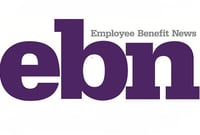Consolidation Corner
-
Blog
- 401k Cash Outs
- 401k Consolidation
- 401k Plan Termination
- America's Mobile Workforce
- Assisted Roll-in
- Auto Enrollment
- Auto Portability
- Auto Portability Simulation
- Automatic Roll-In
- Automatic Rollover
- Automatic Rollovers
- Boston Research Technologies
- CARES act
- Common Mistakes
- DIY Roll-In
- DOL Advisory Opinion
- EBRI
- Employee Benefit News
- ERISA Advisory Council
- Financial Services Roundtable
- Financial Wellness
- How-To
- In-Plan Consolidation
- Leakage
- Lifetime Plan Participation
- Lost Participants
- Managed Portability
- Mandatory Distributions
- MarketWatch
- Missing Participant IRA
- Missing Participants
- National Retirement Savings Cash Out Clock
- Participant Transition Management
- PLANSPONSOR
- Portability Services Network
- PSCA
- Public Policy
- RCH Services
- Retirement Income
- Retirement Plan Portability
- retirement research
- Retirement Savings Consolidation
- Retirement Savings Portability
- Roll-In
- Safe Harbor IRA
- Saver's Match
- Security
- Small Accounts
- Stale Dated Checks
- Synthetic Tenure
- Uncashed Check Services
- Uncashed Distribution Checks
- Video
- Webcast
- What is a Missing Participant?
Retirement Savings Portability (10)
Consolidation Corner Blog
Consolidation Corner is the Retirement Clearinghouse (RCH) blog, and features the latest articles and bylines from our executives, addressing important retirement savings portability topics.
Fast & Slow Leakage Produce a Flood of Outflows
 First, let’s review the definition of “leakage.” If we think of total 401(k) savings as a bucket of water, “leakage” refers to those retirement savings that, like water in a leaky bucket, are withdrawn from the U.S. retirement system every year. There are three holes in the bucket: cash-outs at the point of job change, hardship withdrawals, and loan defaults. According to the U.S. Government Accountability Office, one of these holes is much bigger than the other two combined—nearly 89% of all leakage is attributed to cash-outs that occur when a participant changes jobs. Hardship withdrawals and loan defaults together account for the remaining 11%.
First, let’s review the definition of “leakage.” If we think of total 401(k) savings as a bucket of water, “leakage” refers to those retirement savings that, like water in a leaky bucket, are withdrawn from the U.S. retirement system every year. There are three holes in the bucket: cash-outs at the point of job change, hardship withdrawals, and loan defaults. According to the U.S. Government Accountability Office, one of these holes is much bigger than the other two combined—nearly 89% of all leakage is attributed to cash-outs that occur when a participant changes jobs. Hardship withdrawals and loan defaults together account for the remaining 11%.
Advice college graduates won't hear at commencement: ‘Strive for 25’
 As they set out into the working world, RCH President & CEO Spencer Williams counsels the Class of 2016 on the importance of developing good saving habits from the very beginning.
As they set out into the working world, RCH President & CEO Spencer Williams counsels the Class of 2016 on the importance of developing good saving habits from the very beginning.
What the DoL's Fiduciary Rule doesn’t say
 The Department of Labor’s much-anticipated Fiduciary Rule is ushering in many changes across the retirement services landscape, and the new rules governing the “what, how and why” for advice at the time of a participant’s job change will undoubtedly transform the rollover-to-IRA market. However, a closer reading of the Fiduciary Rule sends a clear, if unstated, signal to plan sponsors, financial advisors and record-keepers—absent a compelling reason to roll over to an IRA, keep participants invested in a qualified defined contribution plan throughout their working lives.
The Department of Labor’s much-anticipated Fiduciary Rule is ushering in many changes across the retirement services landscape, and the new rules governing the “what, how and why” for advice at the time of a participant’s job change will undoubtedly transform the rollover-to-IRA market. However, a closer reading of the Fiduciary Rule sends a clear, if unstated, signal to plan sponsors, financial advisors and record-keepers—absent a compelling reason to roll over to an IRA, keep participants invested in a qualified defined contribution plan throughout their working lives.
Say What? The Arcane Lingo of Retirement Savings Portability

In virtually any area of specialty, a unique jargon evolves that’s highly-specific to that field. To insiders using the lingo every day, it seems familiar and perfectly normal. To outside observers, it can feel like a foreign language -- with words, terms and acronyms that make no sense.
For Earth Day: Consider How "Recycling" Could Apply to Our Retirement System

As we observe the 46th annual Earth Day this April 22nd, we appreciate the awareness that this event has brought to the need to protect our environment, the urgency that it’s instilled in all of us, and the tangible results that have been achieved in so many important areas. Although we have much work to do, we’ve clearly come a long way since the “throwaway” culture that emerged following World War II.
Account consolidation time-consuming, expensive for employees
 As has happened so many times before, the Baby Boomer generation is once again drawing attention to an unmet need: a seamless way to consolidate their collection of retirement accounts into a single account, which is a necessary step to creating a sturdy retirement plan. Much has been written about how sponsors can improve both their plans’ overall health and their participants’ retirement outcomes by embracing roll-ins; nonetheless, the account-consolidation process remains time-consuming and expensive for most participants.
As has happened so many times before, the Baby Boomer generation is once again drawing attention to an unmet need: a seamless way to consolidate their collection of retirement accounts into a single account, which is a necessary step to creating a sturdy retirement plan. Much has been written about how sponsors can improve both their plans’ overall health and their participants’ retirement outcomes by embracing roll-ins; nonetheless, the account-consolidation process remains time-consuming and expensive for most participants.
Saving For Retirement is not a Trivial Pursuit
 In his March 3rd column in MarketWatch, RCH President & CEO Spencer Williams establishes an important link between the board games we played as children (ex. – Candy Land, Trivial Pursuit and Snakes & Ladders) and the “games” we can play in adulthood, while managing our retirement savings. The children’s games are harmless, fun and instructive, but the adult retirement games (ex. – Cashing Out, Stranding Accounts, and Not Updating Your Address) are anything but.
In his March 3rd column in MarketWatch, RCH President & CEO Spencer Williams establishes an important link between the board games we played as children (ex. – Candy Land, Trivial Pursuit and Snakes & Ladders) and the “games” we can play in adulthood, while managing our retirement savings. The children’s games are harmless, fun and instructive, but the adult retirement games (ex. – Cashing Out, Stranding Accounts, and Not Updating Your Address) are anything but.
Tales from the Roll-In Front Lines, Part II
 In a previous post, Tales from the Roll-In Front Lines, Part I, we described a roll-in transaction gone awry: a comedy of errors that occurs all too often when service providers are unfamiliar with consolidating retirement savings from one plan into another.
In a previous post, Tales from the Roll-In Front Lines, Part I, we described a roll-in transaction gone awry: a comedy of errors that occurs all too often when service providers are unfamiliar with consolidating retirement savings from one plan into another.
Leaving Your 401(k) Savings Behind Will Cost You!
 Leaving Your Retirement Savings Behind When You Change Jobs Will Cost You!
Leaving Your Retirement Savings Behind When You Change Jobs Will Cost You!
In his July 30th, 2015 MarketWatch article titled, Leaving Your 401K Behind When Changing Jobs Will Cost You, RCH’s CEO Spencer Williams gives sage advice to America’s mobile workforce, urging job-changing retirement savers to take the initiative and to consolidate their retirement savings.
DIY Plan-To-Plan Portability Is Harder Than You Think
 Have you ever tried to fix a leaky kitchen faucet yourself? If so, the task probably seemed simple at the outset. However, if you’re not an experienced plumber, you may have inadvertently compounded the small problem of a leak — perhaps by over-tightening a nut, pinching the washer, stripping the threads, or worst of all, splitting the pipe — and unintentionally made the situation worse, as well as expensive to fix.
Have you ever tried to fix a leaky kitchen faucet yourself? If so, the task probably seemed simple at the outset. However, if you’re not an experienced plumber, you may have inadvertently compounded the small problem of a leak — perhaps by over-tightening a nut, pinching the washer, stripping the threads, or worst of all, splitting the pipe — and unintentionally made the situation worse, as well as expensive to fix.
-
Blog
- 401k Cash Outs
- 401k Consolidation
- 401k Plan Termination
- America's Mobile Workforce
- Assisted Roll-in
- Auto Enrollment
- Auto Portability
- Auto Portability Simulation
- Automatic Roll-In
- Automatic Rollover
- Automatic Rollovers
- Boston Research Technologies
- CARES act
- Common Mistakes
- DIY Roll-In
- DOL Advisory Opinion
- EBRI
- Employee Benefit News
- ERISA Advisory Council
- Financial Services Roundtable
- Financial Wellness
- How-To
- In-Plan Consolidation
- Leakage
- Lifetime Plan Participation
- Lost Participants
- Managed Portability
- Mandatory Distributions
- MarketWatch
- Missing Participant IRA
- Missing Participants
- National Retirement Savings Cash Out Clock
- Participant Transition Management
- PLANSPONSOR
- Portability Services Network
- PSCA
- Public Policy
- RCH Services
- Retirement Income
- Retirement Plan Portability
- retirement research
- Retirement Savings Consolidation
- Retirement Savings Portability
- Roll-In
- Safe Harbor IRA
- Saver's Match
- Security
- Small Accounts
- Stale Dated Checks
- Synthetic Tenure
- Uncashed Check Services
- Uncashed Distribution Checks
- Video
- Webcast
- What is a Missing Participant?
